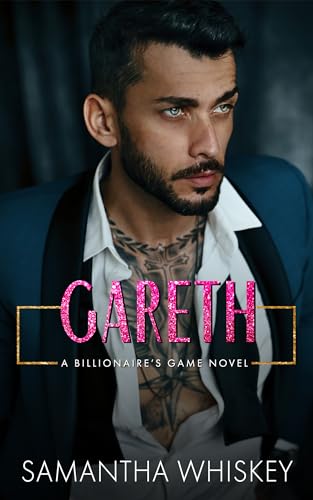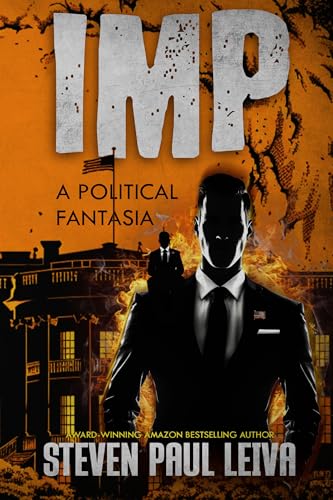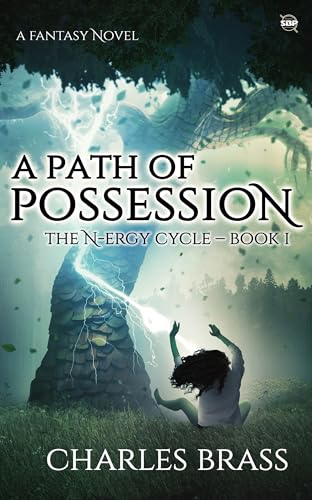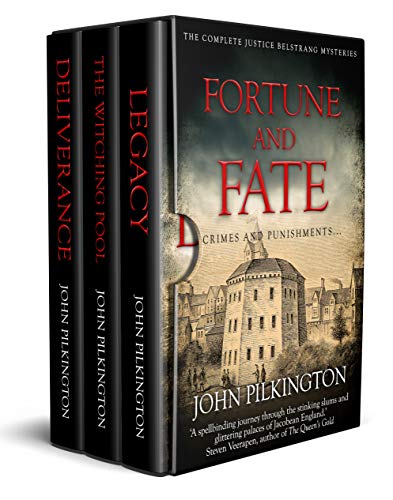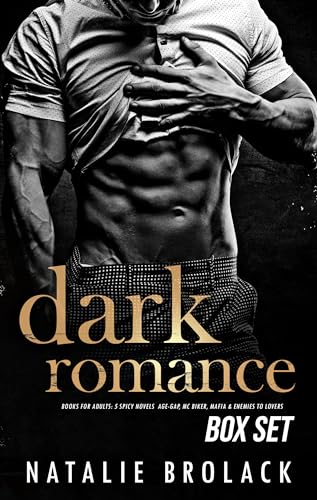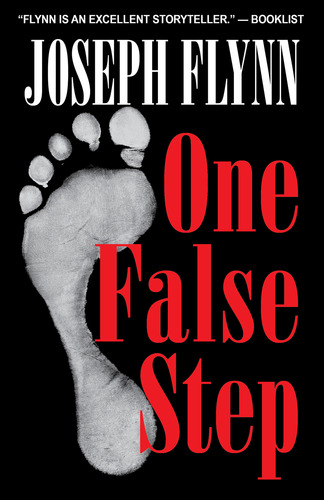One False Step
Two cops…
Bibi Ferrer, San Diego homicide, receives a warning: billionaire Anson Williams, will be done in by his new wife, Alexandra. Despite her best
efforts, Bibi fails to prevent Williams’ death. Worse, she can’t prove Alexandra is the killer. All she can do is follow Alexandra to her Caribbean lair, the island of St. Bertram. Things are even more personal for retired Chicago police captain Terry Dunne. His younger brother is killed by a contract assassin. His only clue: The hit-man might have unfinished business waiting for him on St. Bertram.
Two killers . . .
Avice Toussaint, formerly Alexandra Williams, isn’t every man’s idea of a knockout—only those with a pulse. She’s bored with luring wealthy men to their deaths. Problem is, her father wants her to continue. He’s ex-KGB. He kills people who defy him, no exceptions made for family. George Beecher was an SAS commando, a master of combat. He was far less suited to following orders. After his court martial and discharge from the military, he continued to do the only thing he knew how: kill people. This time for money.
One plan . . .
Bibi and Terry cross paths. Not wanting to alert their prey, they decide to shadow each other’s killer. Get the goods on the killers and see that justice is done. It’s a plan…but when do those things ever work out?
One False Step by Joseph Flynn, Kindle Price: $2.99
And now, to try before you buy, we offer this free excerpt:
Prologue
San Diego, CA
Friday, May 29th
The way Catholics did things when somebody died, the body was left on view at the wake, but the casket was closed for the funeral Mass. Ansel Williams’ remains, however, looking as good as if he’d just closed his latest big real estate deal, were left on display at the Agnus Dei Church right through the last note of “I Shall See My God,” which brought the service to a close. The irregularity was a small concession to the widow in light of her fifty thousand dollar donation to the parish school’s tuition assistance fund.
Alexandra Williams, young, exotically blonde, and the picture of heartbroken beauty, stepped from her front row pew and approached her late husband’s casket. Every eye in the congregation was on her, none more closely than those of the two homicide detectives, both dressed in black, the female with a large brimmed hat, standing at the back of the church. They had an unobstructed view up the central aisle, got to see the widow and her lost love positioned just so in front of the altar and the stained glass window of the Savior.
“Bitch is milking this for all it’s worth,” Detective Bibi Ferrer whispered to her partner.
Bibi was Cuban-American, thirty-five, with chestnut brown hair, caramel skin, and whipcord muscle tone. Passionate about any injustice, she was having trouble holding her temper as she watched a killer stand over her victim, using the church as a stage set to aid in her pretense of anguish.
“Watch for the tear,” Detective Brady Teague answered softly, just a touch of Irish in his voice. “If she’s artful, it’ll be only the one.”
Brady’s hair was silver and cut short. He was slender with world-weary eyes and a rueful smile. He had the elegance of Fred Astaire in his later years. He’d also put away more killers than any other cop in the history of the San Diego Police Department.
On the verge of retirement, he didn’t have to be at the church that morning, but he had sensed Bibi might need his presence to keep from doing something impulsive. That was, something that could damage either her career or an eventual case against Widow Williams.
The two detectives watched as Alexandra gracefully lowered her head. Most everyone in the church would later say that she was kissing her husband goodbye, but curtains of shining pale hair kept any kiss from actually being seen.
Leaving room for Bibi to say, “She’s telling him, ‘Thanks for the money, sucker.'”
“Watch for it,” Brady told her. “It’s coming right … now.”
As if hearing her cue, Alexandra straightened. But she went Brady’s scenario one better. She placed a red rose on her late husband’s suit coat – and then a single tear fell on the flower. Reflecting light like a drop of blood.
“I’m going to get her, Teague,” Bibi said. “If it’s the last thing I do, I’m going to get her.”
The older detective was still taken by the woman’s stagecraft. The flower, the tear, the timing: it had been brilliant. Anyone who didn’t know better would have been taken in completely.
He looked at Bibi and said, “I’ll be available to consult. Assuming my last thing doesn’t come before yours.”
Each detective put on a pair of sunglasses and slipped outside.
Alexandra Williams had left her late husband, the casket now closed, and was heading for the door. The two detectives didn’t want her to get too close a look at them.
From the curb outside the church, Bibi and Teague watched Alexandra’s limousine pull away, taking note of its direction.
“She’s not going to the cemetery,” Bibi said.
Teague nodded. “The airport would be my guess. No time wasted.”
“Out of the country.”
“Someplace warm, welcoming, and protective of its rich.”
“The rich,” Bibi said. “With the seven hundred and fifty million dollars she took from Ansel Williams, she qualifies for that.”
Teague took Bibi’s arm as if he were leading her out onto a dance floor, not back to their car. “Let her think for the moment she’s won. Let her think she’s safe. Let her think -”
“I won’t follow her wherever the hell she goes,” Bibi said.
Chapter 1
Two months earlier Wednesday, March 18th
Bibi Ferrer went down on one knee to peek under the blue plastic sheet that lay on the manicured front lawn of the Mission Hills home. A dead body, all right, but a canine. Nice looking golden retriever, maybe getting a little long in the tooth, but as carefully kept as the lawn and the Spanish Revival house. No signs of violence. Pooch could have come out of the house to lie in the sun and simply breathed its last.
Bibi dropped the sheet and stood. She looked at the patrol cop fidgeting in front of her, an Anglo kid named Jenson, looked like he should be playing point guard on a junior high school basketball team. She wondered how come, if she was only in her mid-thirties and a cop for just ten years, rookies were already looking like babies to her.
Maybe that was one of the reasons, among many, she liked working with Brady Teague. Next to him, she looked like the teenager. But Teague was taking a personal day, and she’d been called out to look at a dead dog.
“Anybody roll the dog over,” Bibi asked, “see if somebody stuck a knife in her heart?”
The very idea was enough to make Jenson blanch, but he said, “No, detective, I just covered her up. You know, so the crime scene wouldn’t be disturbed.”
Bibi asked, “Do we even know if this is a crime scene?”
“Would you have been called if it wasn’t?” Jenson asked innocently. “And if the dog got stabbed, wouldn’t there be some blood on the ground?”
Bibi was used to working with human remains left on concrete or other hard surfaces where blood puddled and pooled, sprayed and splattered. So she wasn’t sure how profusely dogs bled or how absorbent a thick green lawn was.
“You were right to be careful, officer.”
Bibi looked over at the house where a woman with dark hair was looking back at her from one of the windows.
“That’s the lady who called 911?” she asked.
Jenson nodded and consulted his notebook. “Miriam Haig.”
“And Ms. Haig is important enough to warrant all this police attention for her dead dog because…”
The rookie looked at Bibi as if this was a trick question, one with no right answer. He took refuge in consulting his notebook, which Bibi could see had only two jottings in it. Jenson went with the one he hadn’t already used.
“The sarge told me she used to be Miriam Williams; her ex is named Ansel?”
Jenson’s inflection raised the question of whether that might matter.
When you brought up the name of a megarich real estate developer who was a generous contributor to and a close friend of the city’s new mayor, it certainly did. Because when the money was big enough even political clout could become community property.
“Thank you, Officer Jenson,” Bibi said. “You’ve handled things just right.”
Bibi started for the house, and called back over her shoulder, “Keep an eye on the dog.”
Miriam Haig gave Bibi the best cup of coffee she’d ever had, and one of the better backstories. Both were provided in Miriam’s kitchen, where she wouldn’t have to keep glancing out the window, seeing the blue plastic sheet covering her beloved dog, Shirley.
“I filed for divorce from Ansel after eight years of marriage,” she told Bibi. “After I caught him cheating a second time. Both times he was drunk and he boinked some little tart who was handy.”
“He drink a lot?” Bibi asked.
Bibi’s mother had warned her about men who drank. She and Papi had warned Bibi about everything under the sun and even more that went on in the dark. Living in Miami, they worried all the time about their daughter who had moved so far away. Bibi had left home after almost going crazy from the constant talk of how evil Fidel Castro was; how all the exiles in Little Havana would be avenged someday; and how sweet that venganza would be. Bibi had refused to let Castro ensnare her every thought. She was determined to look forward not back. So after college, she moved to Southern California, where people hardly ever mentioned Fidel and the weather was even better than in Miami.
Miriam Haig shook her head. “Not a lot. Ansel got loaded maybe twice a year.”
“Twice a year for eight years.” Doing the math was easy.
“He didn’t cheat every time he got drunk,” Miriam said.
“Okay,” Bibi conceded, “but you probably think you didn’t catch him every time he cheated, either.”
“I did wonder,” Miriam admitted. “I estimate he cheated one out of every two times he got blasted; I caught him one out of every four times he cheated.”
“So what’s all this got to do with your dog?” Bibi asked. “You think your ex did it?”
“Poison Shirley?” Miriam looked shocked. “Good God, no. I think Ansel’s next.”
The conversation moved to Miriam’s home office. Sitting behind her desk, she took a manila file out of a drawer and tossed it onto the work surface.
“I think his new wife-that skinny blonde bitch-is going to kill Ansel,” Miriam said.
“You have some reason, other than personal dislike, to think that?” Bibi asked.
The detective, sitting in a guest chair, looked at the manila file but didn’t reach for it.
“Do you watch much television?” Miriam asked.
“Some.”
“News shows?”
“Not unless they’ve got something uplifting on; I get enough crap on the job.”
Miriam gave a cynical laugh. “I got that, too. People acting like shits. I was a news producer for Close Focus. The on-camera airheads got to make the creeps squirm, but I was the one who dug up the dirt.”
“And you dug some up on the new Mrs. Williams?” Bibi nodded at the file that lay between them. “The dirt’s in there?”
Miriam nodded. “What I could find in the last three months on Alexandra Peters.”
“The new wife’s maiden name?”
“Her most frequently used alias.”
Bibi glanced at the file again, and then looked back at Miriam.
“You care to give me a summary?” the detective asked.
“Married twice before she hooked Ansel. Each husband worth more than a billion dollars. Each died unexpectedly. Combined windfall for blondie after the two men died: her own billion-plus dollars.”
That got Bibi’s attention. Maybe Ms. Haig’s suspicions were founded on something more than spite.
“How’d they die, the two husbands?” Bibi asked.
“Husband number one in Texas suffered a fatal stroke; husband number two in Arizona blacked out at the controls of his plane and flew it into a mountain. Both men had been in excellent health before marrying Little Miss Murder.”
Bibi heard the woman’s TV background slip out there. Package the killer for the consumer. But she had to admit, Little Miss Murder wasn’t a bad hook.
“I’ve always heard cops don’t like coincidences,” Miriam said.
“We don’t,” Bibi agreed. “Two men dying like that, I have to think there’s more than the hand of God involved.”
“Here’s who’s involved.” Miriam flipped open the file and pushed it closer to Bibi. An 8×10 glossy photo rested atop a stack of paper. It showed a beautiful adolescent girl standing next to a tall, lean man of about forty with a cruelly handsome face. “She’ll deny it, but that’s Alexandra Peters Williams, approximately ten years ago.”
“Who’s the man?” Bibi knew a bad guy when she saw one.
“His name’s Maxim Petrov. Late of the KGB. See the resemblance?”
“Yeah. Her father?” The likeness was that close.
“Yes,” Miriam answered. “If you know anything about the Cold War -”
“I do.” It was a favorite topic of debate in the Cuban exile community.
“Then you know the KGB were the world’s greatest poisoners. Still are. Look at that poor jerk in London, the one who got the polonium slipped into his tea. But that one was meant to be obvious. To send a message. If they want to be devious, they can kill and leave no trace of a toxin for an autopsy to find.”
Bibi looked at Miriam, wondering how she knew all this.
Maybe it was required reading for somebody who worked in television.
“The Russians have poisons that can cause strokes, can make somebody black out at the wrong time?” Bibi asked.
Miriam nodded.
Bibi took another look at the photo and then closed the file. She picked it up and put it on her lap. She’d be reading Miriam Haig’s dirt, after all. But she had a few more questions.
“How did you come to suspect your ex-husband’s new wife in the first place, Ms. Haig?”
Miriam took a deep breath before answering. “She scared me. She tried to invalidate the trust Ansel set up for my sons and me. She wanted all our money. His and mine.”
“Your ex-husband went along with this?”
“No. Even when we divorced, Ansel was generous. He didn’t bat an eye at losing half his fortune. He knew he could always make more. In fact, he was the one who warned me the bitch was going to sue. He said letting her do it was just a way to humor her because no power on earth could break the trust he set up for the boys and me. And he was right; the judge threw the case out of court. But when she lost, the look that woman gave me made my knees weak. I hated her for scaring me like that, and I decided I’d better know who I was dealing with.”
“Who helped you with your investigation?”
Miriam smiled. “I was a State Department brat. Moved all over the world. Wherever we went, though, my best friends were always the guys in Diplomatic Security. I still keep in touch.”
“So how do you feel now?” Bibi asked. “Now that you’ve got your dirt.”
Miriam Haig’s smile disappeared. “Like a damn fool. After I collected my information, I made a lunch date with Alexandra. I told her nothing better happen to my children’s father or the world would learn who she and her father really are. Maxim Petrov, by the way, is wanted by Interpol.”
“That was foolish, all right,” Bibi said.
“I thought I could scare her.”
“And all you did was get your dog killed.”
Tears welled up in Miriam’s eyes.
“That’s why I called the police. I have Shirley’s death on my conscience; I don’t want Ansel’s death there, too.”
Chapter 2
Thursday, March 19th
Bibi read Miriam Haig’s file, gave it to Teague to read, and talked it over with him.
“Frightening in both concept and scale: the super black widow,” he said. “You’d imagine the truly wealthy would be more careful about whom they let draw close.” He took another look at Alexandra’s photo. “But if you started with this girl’s looks and let them mature into womanly beauty, the men would be the ones making the approach.”
“And these rich fools don’t have lawyers who’d insist on a pre-nup?” Bibi asked.
Teague displayed one of his rueful smiles. “Of course, they do. The dead men’s lawyers are probably more bitter than their next of kin; they’re the ones who had their best legal advice rejected. All because their clients had been so completely bewitched.”
“Yeah, well, casting spells isn’t something I’d know about,” Bibi told him.
Teague’s smile changed to one of indulgence, and Bibi, who could stare down a cobra, looked away. Teague had lost his wife two years earlier, shortly after Bibi had started working with him. He’d accepted her condolences with thanks and a handshake. That was the only physical contact with emotional content they’d ever shared. He’d certainly never cried on her shoulder. Never got drunk and made a sloppy pass at her. Hell, he’d never even let his work slip.
Even so, she’d seen the heartache in Teague’s eyes – anyone could. But he never lost his ability to smile, to marvel at nature, and to be thankful that he was so much smarter than the creeps he put away. After a year, the sorrow in Teague’s eyes diminished and now only an occasional shadow of loss fell over his face.
Being who she was, working with Teague every day, Bibi finally had to ask him, “How’d you do it? How’d you get past the hurt?”
He told her straight. “We knew the end was coming and Bonnie sat me down one night and told me she wanted to reminisce. She wanted to recall as many of our good times as we could. And she wanted me to tape everything. Audio only. She was saddened by how she looked. But her voice, right till the very last, was as youthful as when she first said hello to me. After she passed, whenever I was down, all I had to do to feel better was play one of our tapes. Hear her laugh again. I still listen to the two of us talking like newlyweds. My nephew digitized the tapes for me; now I can listen on my iPod. Right in public if I want. I smile and laugh and sometimes dance a little jig. I’ve seen people look at me like, ‘Hey, that geezer must have pirated something good.'”
Bibi had laughed at the line, and that’s when she started to fall in love with Brady Teague. Hell, he wasn’t that old. Fifty-seven was all. Okay, that was a year older than Papi, but still. She wasn’t sure she wanted kids, but she’d bet he could give them to her, if that’s what she decided. There was time for her and Teague; they could create their own memories.
Except neither of them had taken a step in that direction. But Bibi kept thinking about it. And she suspected the idea had crossed Teague’s mind, too. Maybe she’d have to be the first one to say something.
“We’ve got no jurisdiction in Texas or Arizona,” Bibi said. “Nothing we can do about either of those deaths.”
“And besides a dead dog, we have nothing but the suspicions of a former spouse in our jurisdiction,” Teague added. “No grounds to proceed.”
But then Teague’s look grew pensive, and Bibi knew he’d had an idea.
And his ideas were usually 24-karat gold.
“What?” Bibi asked.
“Exotic poison is one thing,” Teague said, “but my suspicion is the new Mrs. Williams’ father is the one who spikes the punch bowl. It’s likely the marks don’t know about him; he can slip in and do the dirty work while his beautiful, treacherous daughter gives herself a lovely alibi.”
Bibi nodded. She liked it.
She said, “I’m going to talk with Ansel Williams.”
Ansel Williams’ Enterprises – AWE on the understated bronze sign out front – had their corporate offices on La Jolla Village Drive, a mortarboard’s throw from UCSD. The building was two-storied, sited for optimal solar collection and landscaped with drought-tolerant plantings. A valet took Bibi’s car at the curb and assured her it would be returned promptly if she needed to leave in a hurry.
Miriam Haig had set up the appointment for Bibi. Got her an hour of Ansel Williams’ time, if she needed that much. Bibi was impressed. She knew plenty of women whose current husbands wouldn’t be as accommodating.
Williams didn’t keep her waiting long enough to pick up a magazine. He came to greet her in person, too. With what looked like a sincere smile on his tanned and handsome kisser.
Bibi thought maybe Miriam had been a little hasty in filing for a divorce. Having a guy like this even on a most-of-the-time basis would be a pretty good deal. Long as he didn’t get carried away with … nah, she wouldn’t be able to put up with him screwing around on her, either. Not for more than eight years, anyway.
“Pleased to meet you, Detective Ferrer,” he said “I’m Ansel Williams. Please come with me.” Just outside his office, he asked his secretary to hold his calls.
He got Bibi seated in front of his elegant but not oversized mahogany desk, brought her a Perrier with a wedge of lime from his wet bar, and sat down opposite her looking like a billion dollars – one-point-five billion before Miriam got her half of the community property.
“I hope you don’t mind, detective,” Williams said, “but after Miriam called I had you checked out.”
Which made Bibi think about what Teague had said. About how rich guys shouldn’t let just anyone get close. She told him, “I hope I checked out okay.”
“I was impressed by how many cases you’ve solved since you’ve been in homicide.”
“That’s mostly Detective Teague’s doing.”
Williams nodded. “Sure, I hear he’s really something; I had him checked out, too. But what my researcher tells me, you add distinct value to your team.”
It was petty, even hypocritical, but Bibi started to get annoyed. The guy had checked out Teague, too? Who the hell did he … she tapped the brakes on her Cuban temper. Williams was being very nice to her, right out front. And cops never cared whose feelings they hurt when they went snooping. So, she went with Willliams’ compliment, about her adding value.
“I’m a hard worker, Mr. Williams.”
“Smart, too, I’m told. And Miriam was impressed with you. If you’d ever care to work in the private sector, please give me a call. I believe I can offer you a better salary than the city.”
Wouldn’t be hard; San Diego was in debt up to its eyeballs.
“I’m afraid the only thing I know about real estate, Mr. Williams, is that I don’t own any.”
Williams smiled again, this time seemingly brighter than before.
“Work for me and we’ll change that.”
Bibi was good at reading people. She didn’t get the feeling he was coming on to her. Not for sex. Maybe to have her on his side, though. Like he was setting her up for a sale before she’d even known she was in the market. Had her halfway ready to sign up for whatever he was pitching.
No wonder he’d gotten so rich.
“I like putting away bad guys, Mr. Williams. Gives me a satisfaction money can’t buy.”
Williams made a gesture of graceful acceptance. “If you ever change your mind, the offer’s open-ended.”
“Thank you. Your generosity, though, it makes my visit here even harder.”
Williams sat back in his seat. “Allow me to make it easier. Miriam set up your appointment. Doesn’t take much triangulation to figure out where that leads. Alexandra.”
Bibi nodded. “Yes, sir. Has the former Mrs. Williams shared her suspicions with you?”
“No, but I know Miriam’s professional background. She checks people out, too. And that, of course, would tell her that Alexandra has been married twice before and both of her previous husbands met unfortunate ends and left her a great deal of money.”
“Your new wife told you all that?” Bibi asked.
“She did. Both Thomas Buckram and Alan Sanderson died of natural causes, as the coroners in both cases have ruled. When Mr. Buckram died in Texas, Alexandra was shopping in Manhattan. When Mr. Sanderson died in Arizona, she was visiting an aged aunt in Paris.”
The lovely alibis Teague had predicted.
“Your wife has mentioned her family to you?” Bibi asked.
“Only that her Aunt Berthilde is her only living relative.”
“She never mentioned her father then?” Bibi asked.
Williams frowned. The expression wasn’t natural to him and he disposed of it quickly.
“Her father was a Russian naval officer. He perished in a submarine catastrophe in the Pacific off Vladivostok. The news unhinged her mother, and she committed suicide.”
Bibi shook her head. “Miriam Haig has found documentation that Maxim Petrov -”
“Yes, that was Alexandra’s father’s name.”
“Miriam has evidence Maxim Petrov is a former KGB officer; he was seen as recently as three years ago; and he’s a fugitive wanted by Interpol. I’ve confirmed all this.”
Williams forced a laugh, but his tan had paled. “That’s ridiculous. Another man with the same name, that’s what this has to be.”
Bibi had copied everything in the file Miriam Haig had given her. She’d brought the copies with her, and now she placed on Williams’ desk a duplicate of the photo of a young Alexandra Petrov standing next to her father.
The real estate developer stared at the picture, recognizing his new wife when she was a teen. He tried not to look at the image of the man next to her but couldn’t resist.
Bibi told him, “Maxim Petrov is wanted on suspicion of murder. At about the time this photograph was taken in Berlin, there was a warrant for his arrest for crimes he’d committed some years earlier as a Soviet spy in the former West Germany. But when the police went to take him in, he and his daughter had vanished. Left behind was the body of the informer who’d sold Petrov out.”
Ansel Williams looked up at Bibi.
“This is the man your wife told you was a naval officer,” Bibi said.
“She…she must have been afraid to tell me the truth.”
Bibi said, “I’ll go along with that.”
“I mean, nobody would want to acknowledge someone like a KGB killer.”
“Mr. Williams, look at the picture again. Do you see any strain on Alexandra’s face, any sign that she’s being compelled to stand there with her father? I don’t. If anything, it seems to me they’re both humoring whoever took the photo. There’s a bond between them.”
Williams’ head bobbed in reluctant agreement.
“But I love her,” he said.
Bibi put the rest of the Alexandra Peters file on Ansel Williams’ desk. She got to her feet, ready to leave. Knowing she’d likely blown any future job offer from AWE.
“Just to make things plain, sir,” Bibi said. “In my opinion, your life is in danger. And if you ever see Maxim Petrov, make sure you have help nearby.”
Disbelieving, Williams looked at Bibi. “But why would Alexandra want to kill me? She has more money than I do, for God’s sake.”
Bibi said slowly, “But remember how she got it. And for some people, they can never have enough. Whatever your present security arrangements are, Mr. Williams, I truly hope you’ll update them.”
“To keep me safe from my wife?”
“And her father.” Bibi turned to go, but Williams stopped her.
“You know why I married Alexandra, detective?”
“One look and it’s plain to see.”
“Yes, she’s stunning, but there have been others just as beautiful.”
Bibi waited to hear the rest.
“I got tired of screwing around, giving in to stupid impulses I should have outgrown. I’d already lost Miriam, lost being a full-time father to my sons. But with Alexandra, she…”
He drifted away and this time Bibi brought him back.
“She what, Mr. Williams?”
“She both thrills me and scares the hell out of me. I thought with her I’d have to stay faithful. If I didn’t, she’d kill me.”
Chapter 3
Friday, May 15th
According to everyone Bibi talked to, there was no sign that Ansel Williams had ever been unfaithful to Alexandra, but six weeks after Bibi had warned him his life was in jeopardy, he was dead. One moment he was standing at the helm of his seventy-three-foot Reichel/Pugh racing monohull, Saber, bringing it smartly about, the next moment he had fallen overboard into the blue Pacific.
Two members of the crew said they saw the captain’s eyes roll back in his head immediately before his hands fell from the wheel, his legs crumpled, the snaphook on his safety harness flew apart and he pitched off the steeply heeled deck. A strong swimmer, Williams should have been all right even though he wasn’t wearing a life jacket. At the very least, he should have been able to break the surface and wave for help. But whatever had put him into the deep kept him there.
The only reason his body had been recovered was that crewman Ron Peranowski, a former Navy diver, cleaved the water mere seconds after Williams did and by the greatest luck had been able to find his skipper twenty feet below the waves and haul him to the surface. But by then it was too late. The slack, unconscious man had swallowed too much water, and in the choppy sea, every time Peranowski opened Williams’ mouth to try to force the water out another wave filled him anew. By the time Williams was pulled back aboard his boat, there was no chance for resuscitation.
An extensive post-mortem ordered by the San Diego County D.A. revealed that Williams’ body showed no sign of anemia, carotid stenosis, congestive heart failure or pulmonary embolus. Additionally, the deceased’s personal physician said he had no history of hypoglycemia or hypotension, and had, in fact, passed his annual physical, only six months prior, with flying colors.
In short, there was no clear medical reason why Ansel Williams should have blacked out at that particular moment. But then both the coroner and Williams’ doctor had to admit that often no cause could be found for why people fainted. Some events were simply medical mysteries.
Why the snaphook securing Williams’ safety harness to the boat had failed was another puzzle. Its structural collapse had been so complete that it had apparently fragmented into many small pieces all of which were lost to the sea. Metallurgical tests done on the snaphooks of everyone else on the yacht showed no cracks, metal fatigue or any other defect.
Alexandra Williams not only cooperated with the investigations into the circumstances of her husband’s death, she demanded that they be conducted with the greatest vigor.
But after two weeks without progress in answering either of the critical questions, the loss of consciousness by Williams and the loss of integrity by the snaphook, the authorities had no choice but to release Ansel Williams’ body to his wife for burial.
Chapter 4
Friday, May 29th
Bibi Ferrer sat with Her Honor Paula McKay in the mayor’s office on the eleventh floor of the City Administration Building. Mayor McKay’s predecessor in office had become famous for saying of San Diego, “The city is broken.” Things still weren’t looking up.
One of the attempts at reform by the previous administration had been a new city charter amendment requiring voter approval for any future pension and benefit increase for municipal employees. A referendum on that very issue was scheduled for that fall and the first poll taken showed voters were opposed, 84% to 16%, with nobody forecasting a turnaround in sentiment.
Yet another reason for Bibi to feel frustrated in her job.
“I was told you and Brady Teague were at Ansel Williams’ funeral today,” the mayor said. “I didn’t see you there.”
Bibi said, “We were at the back of the church.”
“You know what I was hoping, Bibi? I was hoping Ansel’s coffin lid would slam down and break that damn woman’s fingers.”
Bibi smiled, but she said, “You’d never shoot it that way.”
Paula McKay had three Academy Awards at home, one each for editing, writing, and directing. A double hyphenate in her heyday. She’d decided to come home to San Diego after the only agent she’d ever had was killed by his boyfriend of twenty years. The killer had been a dear friend of Paula’s, too, and had even asked her to pay for his defense attorney. She’d declined and now he was on Death Row, watching one appeal after another being denied, as he made his way ever closer to a date with a lethal injection.
Partly as a way to keep busy and take her mind off the tragedy, partly because her work experience had included riding herd on groups of lunatics, Paula had decided to run for mayor and see if she could help her hometown out of the mess in which it was mired.
Her main opponent had been the chief of police, and most of the department brass had supported him. Anyone on the SDPD who didn’t support the chief was supposed to keep his damn mouth shut. Something Bibi Ferrer never could do. She’d been one of Paula McKay’s earliest and highest-profile supporters. She had been the first person, after the mayor-elect’s husband, to get a hug from Paula in front of the TV cameras on election night.
Papi had seen a TV replay of the embrace and called that night with his own views. “A woman as mayor? Instead of the chief of police? And you think this is good?”
To which Bibi had replied, “What country is this, Papi, this place where we both live? For that matter, what century is it?”
Her father’s silence told her they lived in different worlds and different times. All he could say was, “Your mother wants to talk with you.”
Her mother had congratulated her on her new fame and asked how soon she would be coming home. To get married. Start a family.
Bibi wanted to say when Miami freezes over. Or Castro finally dies. Whichever comes first. But all she did was invite her mother to visit San Diego. She would introduce Mami to her fellow detectives, especially her partner. She thought it would be better if her mother met Teague without having Papi around.
“Did you know Ansel was having a financial problem?” the mayor asked Bibi.
The detective sat back in her chair. “Don’t tell me he was broke.”
Mayor McKay laughed. “Far from it. But the sub-prime mortgage debacle caused him some trouble. He needed a line of credit fast, but the banks aren’t handing out cash to real estate developers these days.”
“How much did he need?”
“A hundred million dollars.”
Bibi blinked. “I just can’t understand money that big.” Then she blinked again. “He didn’t get it from -”
“Yes, he did. His dear wife came through for him on a moment’s notice.”
“Goddamn,” Bibi said. “Won’t that make her look like an angel of mercy?”
“Indeed, it will. But it was a smart move for another reason, too. Without the money, Ansel would have taken a big loss, maybe three hundred million. So she not only bought good will, she maximized her inheritance.”
Bibi ground her teeth a moment before the mayor spoke again.
“Have you come to ask for a favor, Bibi?”
There had never been any quid pro quo for Bibi’s help in getting Paula elected, and Bibi had been a big help getting some conservatives and especially women to vote for the “Hollywood Carpetbagger,” as the former chief of police had dubbed his opponent. With the corruption scandals that had plagued the city, it was out of the question that Bibi would receive a sudden, major promotion within the SDPD, and she was hardly the type to ask for a leg-up into the movie biz. But now there was something Bibi wanted and both women knew it.
“I’d like you to make a phone call on my behalf,” Bibi said.
“To?”
“Chief Constable Raynold Chism of the Constabulary of St. Bertram.”
The mayor asked, “How do you spell his name?”
Bibi told her and provided the chief constable’s phone number.
“And what would you like me to tell this man?” the mayor asked.
“That I’d appreciate any cooperation he can give me in investigating one of his country’s richest citizens.”
“Alexandra Peters?”
“Yes.”
“You found out that’s where she lives – between husbands?”
“Miriam Haig called me this afternoon. She’s very angry that her sons have lost their father … and she’s ashamed she was too afraid to come to Mr. Williams’ funeral.”
“Does Miriam think she’s in real danger? Do you?”
“Alexandra Peters is responsible for three deaths, as far as I’m concerned. She kills for money, which she’ll never get out of Miriam Haig, but for all we know she could kill for spite, too. She lost her try at Miriam’s money. So she might be ticked off. Yeah, I’d say Miriam could be in danger. Her boys, too.”
Mayor McKay nodded. Made a note. Underlined it twice.
The she asked Bibi, “Is St. Bert still a British possession?”
“Independent for nine years.”
“And how does an immigrant become a citizen there?”
“St. Bert isn’t looking for anybody’s wretched refuse; you need a minimum net worth of one million dollars to apply for citizenship, and ten million would be better. When you qualify a thousand times over, like Alexandra, they’re probably pretty quick about doing the paperwork.”
The mayor smiled and said, “You’ve done your homework.”
“Got it from Miriam.”
“Does Brady Teague want to go, too?”
“No.” If things got crazy, Bibi didn’t want Teague to get in trouble.
She might need him to bust her out of jail.
“You think I’ve got the pull to help you, Bibi?” the mayor asked.
“You’re already a well respected politician, Paula, and with your show biz background, people know you anywhere your movies have played. And St. Bertram likes to maintain good relations with the U.S. So, yeah, I think at the very least you can get the chief constable not to lean on me while I poke around.”
“Maybe I can,” the mayor said, “but you’d have to play by their rules.”
“Absolutely,” Bibi said with a straight face.
“From what I remember of my one visit to St. Bert, it’s a pretty expensive place just to vacation. Your paycheck probably won’t go too far.”
“I have some savings,” Bibi said.
The mayor shook her head. “Ansel Williams was my friend. He was a good man, despite his weakness for women. I’ll take up a little private collection to underwrite your efforts. Strictly unofficial – as I’m sure I’ll tell a grand jury someday,” she added with a laugh. “How much time do you think you’ll need?”
“I’m owed seven weeks vacation time,” Bibi answered. “Let’s see what I can do with that.”
Don’t stop reading now! Buy One False Step by Joseph Flynn, Kindle Price: $2.99


